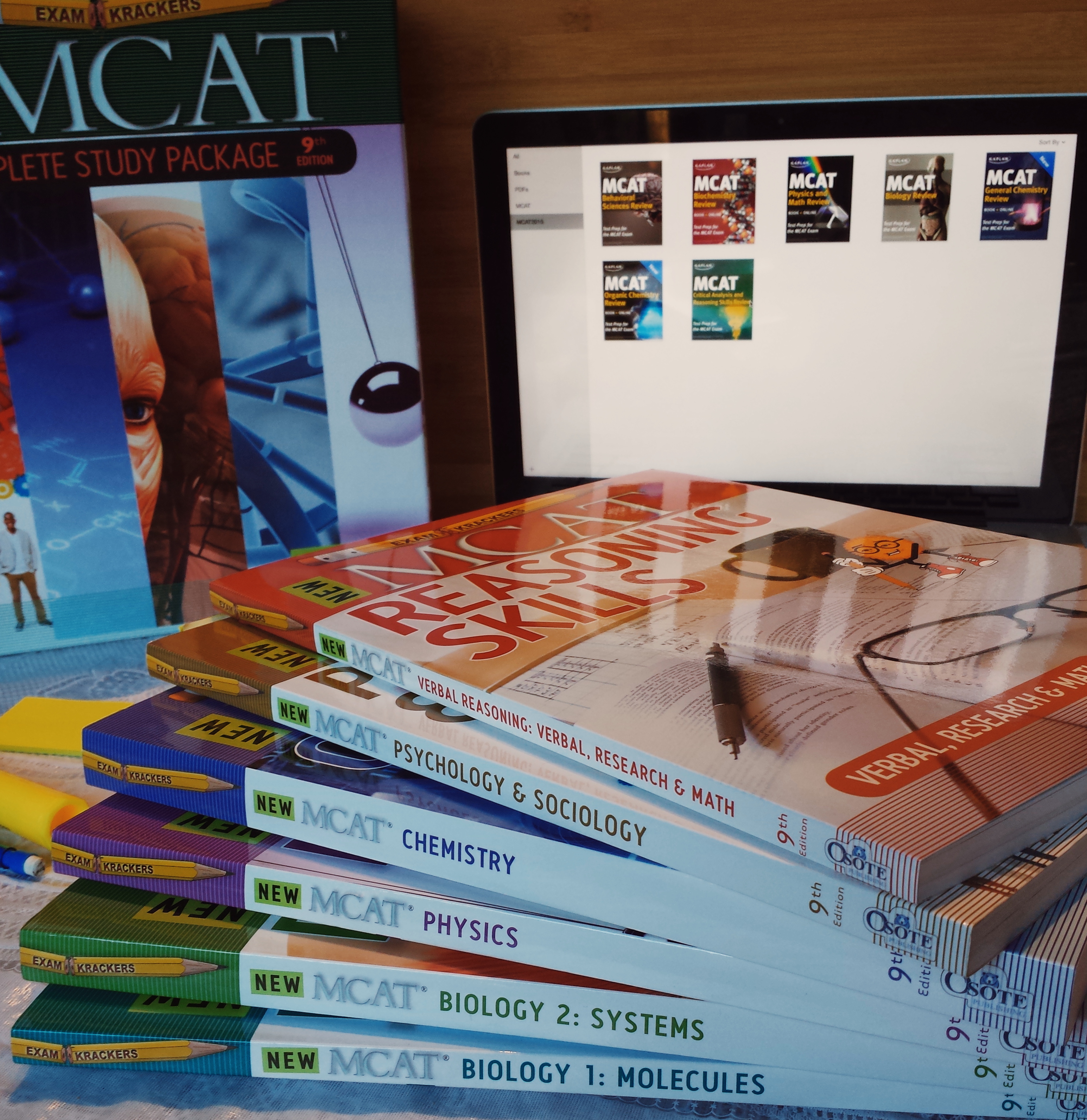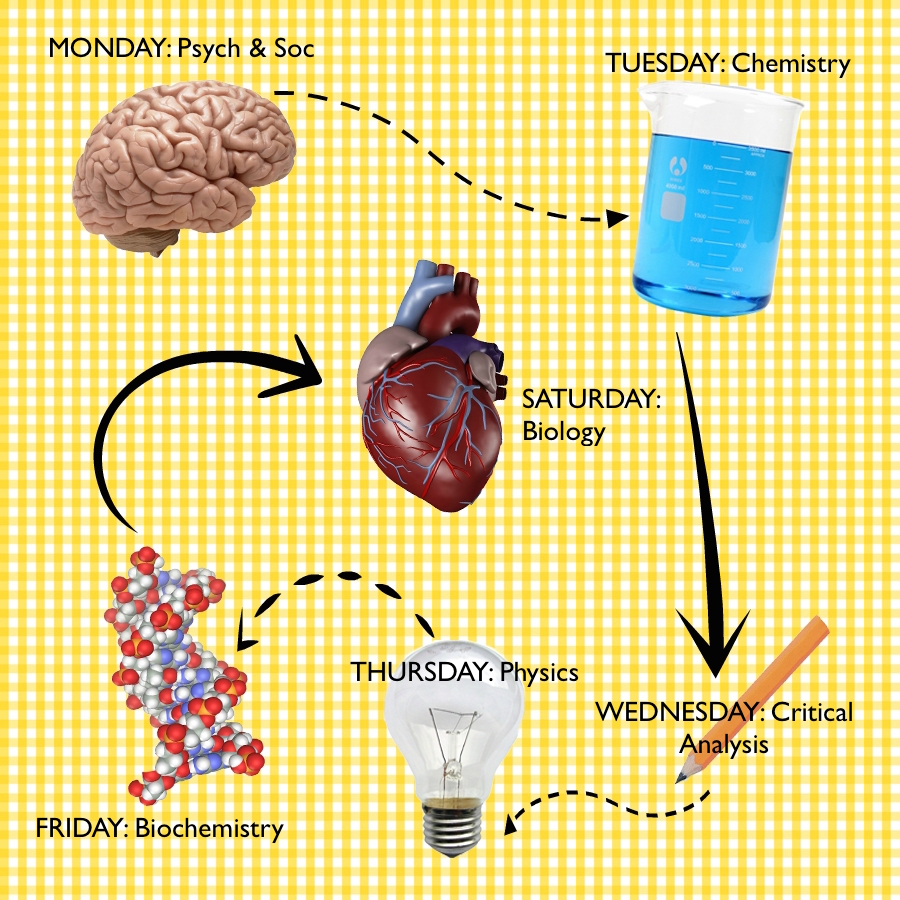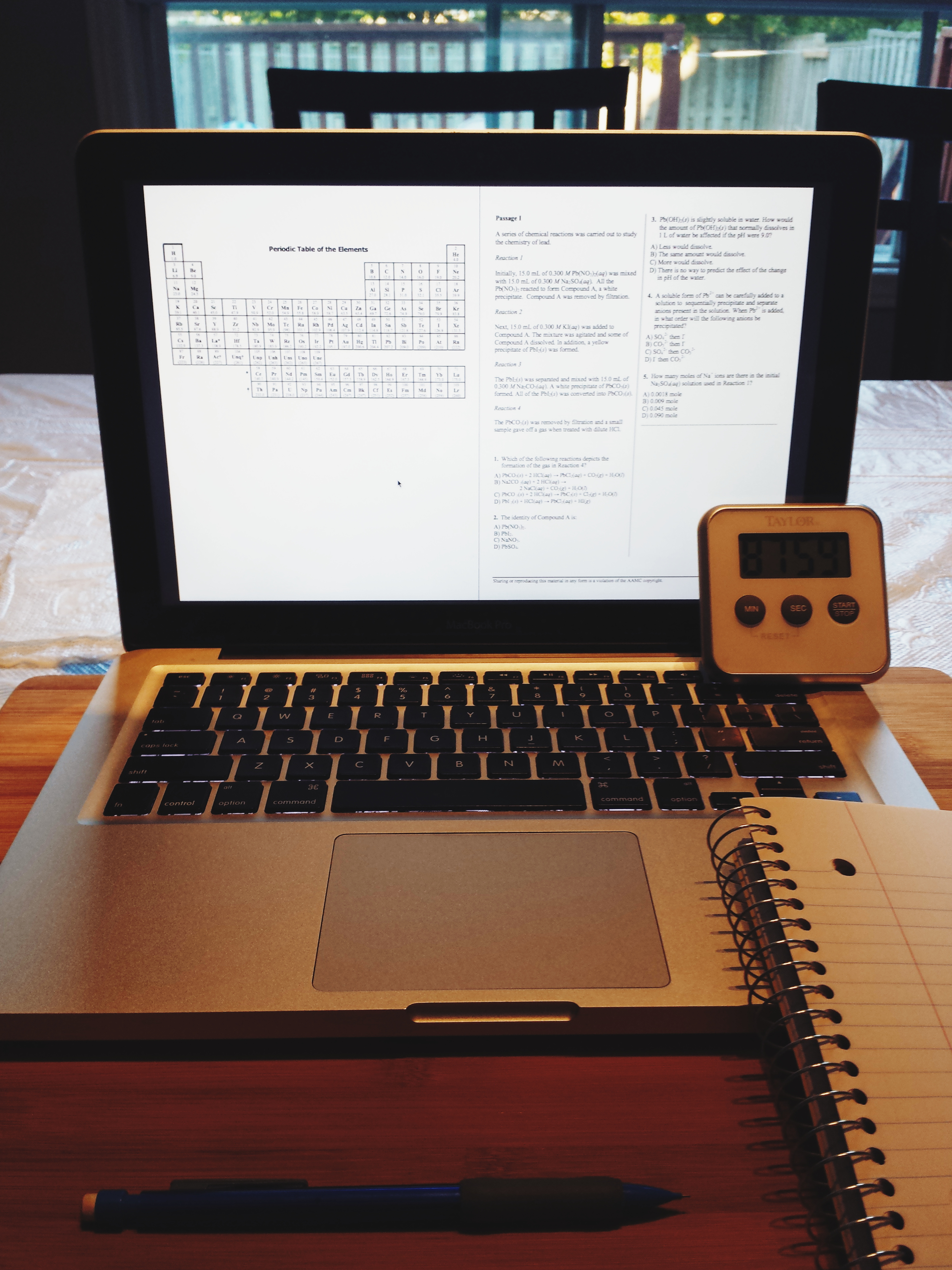 This August, I'll be rewriting the MCAT - a necessary component for applying to many medical schools. It’s the only time that the word “cat” could make me feel any kind of negative emotion. Hopefully I’ll do better this second time given the infinite number of mistakes I made from the first sitting. And while my failed experience is through the lens of a medical school admission test, I’m hoping this advice will be applicable to anyone planning on writing other admission tests like the DAT, LSAT, PCAT, or GRE.
This August, I'll be rewriting the MCAT - a necessary component for applying to many medical schools. It’s the only time that the word “cat” could make me feel any kind of negative emotion. Hopefully I’ll do better this second time given the infinite number of mistakes I made from the first sitting. And while my failed experience is through the lens of a medical school admission test, I’m hoping this advice will be applicable to anyone planning on writing other admission tests like the DAT, LSAT, PCAT, or GRE.

The content just seems daunting when you’re trying to study everything at once. As well, many students feel intimidated by the format of the test. The long, wordy passages and obscure information throw people off. The key is to look past unnecessary factoids and concentrate on solving the questions using basic concepts you already know. The MCAT will not test anything beyond what the curriculum tells you to study. Plus it’s all multiple choice so process of elimination can be useful.
The hardest thing is keeping a level head the entire time you’re sitting there. It is both mentally and physically exhausting to sit at a computer for hours… and exponentially harder if you’re ill-prepared and running on zero sleep (me). But if you’re calm and relatively confident (I say relatively because realistically everyone will be nervous no matter how much they study), then you will be okay!

When should I write the test? The AAMC will have select dates as to when you can sit for the MCAT. I chose to write in August again because I could spend my summer focusing on it and not have to deal with a full course load. When you choose to write will depend on your own schedule and priorities - I know students who write during the school year and still do well!
I was in second year the first time I wrote it and the material was all review (again, because I took the necessary pre-reqs). I would say that a prime time to write it would be for students just finishing second year in Life Sci because all the concepts are still fresh.
How much time should I allocate for MCAT prep? I studied in two weeks before the MCAT. The first weekend of the test month was spent frolicking on an island for Osheaga and the rest of time I was honestly just procrastinating. If you plan on writing late summer, an intensive 3-month study period is okay, assuming you haven’t forgotten everything from your courses the second you left the exam (a very real possibility). Obviously, the more time for prep, the better! This gives you a chance to pace yourself and not have to concentrate so intensely for 3 months straight.

How should I prepare for the MCAT? I’m currently using a combination of Exam Kracker and Kaplan review books, but there are also Princeton and Berkeley. If you’re going to self-study using just books, it is important to stay on schedule because it is very easy to get distracted or procrastinate when you’re at home. As well, there are Khan Academy videos dedicated to the new MCAT material.

I found a neat website/app called Cram that lets me make electronic flash cards which I read while on the bus - pretty good for memorizing psych and soc terms!
You can participate in paid prep courses: Prep101 and Kaplan often sponsor student groups on campus that are always raffling off discounted courses during their group meetings. These are pricey but have a strict schedule so they force you to stay on track.
You can find MCAT posters advertising free seminars posted all over campus. There will probably also be representatives from different student groups like the Pre-Med Society posting on Facebook or handing out flyers after your classes.
But above all, PRACTICE with tests or problem sets. AAMC practice tests are the most helpful; I found them the best indicator of difficulty, content, and question styles, especially for the verbal (now rechristened as CARS) section. Even though I was a little lacking in content knowledge, doing these was a lifesaver. It is also important to time yourself when doing them as to stimulate a real test environment, so you get a feel for how much time you should spend on questions.
Any study tips for intense exams? Are you considering writing the MCAT yourself? Feel free to ask questions or leave a comment below!


0 comments on “This is not the CAT that Meows”